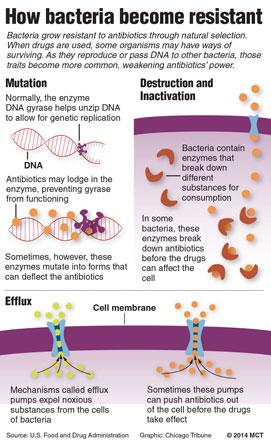You are here
Families often share potentially dangerous antibiotics
By Reuters - Nov 07,2018 - Last updated at Nov 07,2018

Photo courtesy of safekids.org
A substantial proportion of parents confessed to giving their children antibiotics that had been prescribed for someone else, according to survey results presented by US researchers at the American Academy of Paediatrics conference in Orlando, Florida.
The practice promotes antibiotic resistance and risks exposing children to dangerous dosages, expired drugs with harmful products of degradation and potential allergens, study leader Tamara Kahan of Northwell Health in Lake Success, New York, told Reuters Health by e-mail.
“Physicians should emphasise the importance of finishing the entire course of antibiotics so that there are no leftovers, disposing of leftover antibiotics when relevant, and the risks of sharing any type of medication with people for whom it is not prescribed,” Kahan said.
Kahan and colleagues recruited parents nationwide through Amazon Mechanical Turk, a crowdsourcing online marketplace. Ultimately they evaluated the responses of 496 parents who met their inclusion criteria. Participants were 61 per cent female and 69 per cent white, with an average age of 34.
Overall, 454 parents, or 92 per cent, said they’d had leftover antibiotics in the house. More than one third of those parents (159 or 35 per cent) said they had redistributed the leftovers to others, including children and adults. Antibiotic diversion, as the tactic is called, was more common with drops and liquids than with creams and pills.
Parents sometimes put other family members on the same dosage prescribed to the child who received the prescription. Or they estimated a new dosage according to the age of the family member.
As many as 16 per cent of the survey takers said they gave their children adult medications.
It is unknown precisely how harmful the practice may be, either to people or through the promotion of antibiotic resistance. Those questions will be studied in the future, Kahan says.
“The study provides interesting insight into a common problem of ‘leftover’ antibiotics,” said Dr Jordan Taylor, a paediatric surgeon at Stanford University School of Medicine in California who was not involved in the research.
“The researchers found that liquid or solution-based medications are more frequently stored and diverted; liquid or solution medications are used almost exclusively in paediatric patients as most cannot swallow pills. It would appear that more teaching needs to be provided by the providers or pharmacists on how to handle liquid medications once the prescription is complete,” Dr Taylor said.
A limitation of the study is the researchers’ use of Mechanical Turk to recruit study participants. Dr Taylor believes that a study of people recruited in this manner might not generate findings that apply to the general public.
Also, Taylor said, “It would have been interesting to ask the respondents why they kept the medications or if they had discussed what to do with extra medication with their provider.”
Related Articles
Kids who get treated with broad-spectrum antibiotics before age two face a higher risk of childhood obesity, said a US study on Monday.
AMMAN — Medical specialists on Wednesday advised the public against buying non-prescribed antibiotics from pharmacies amid the prevale
When sick kids leave the hospital, parents often do not understand what follow-up care is needed or how to give children medicine at home, a



















